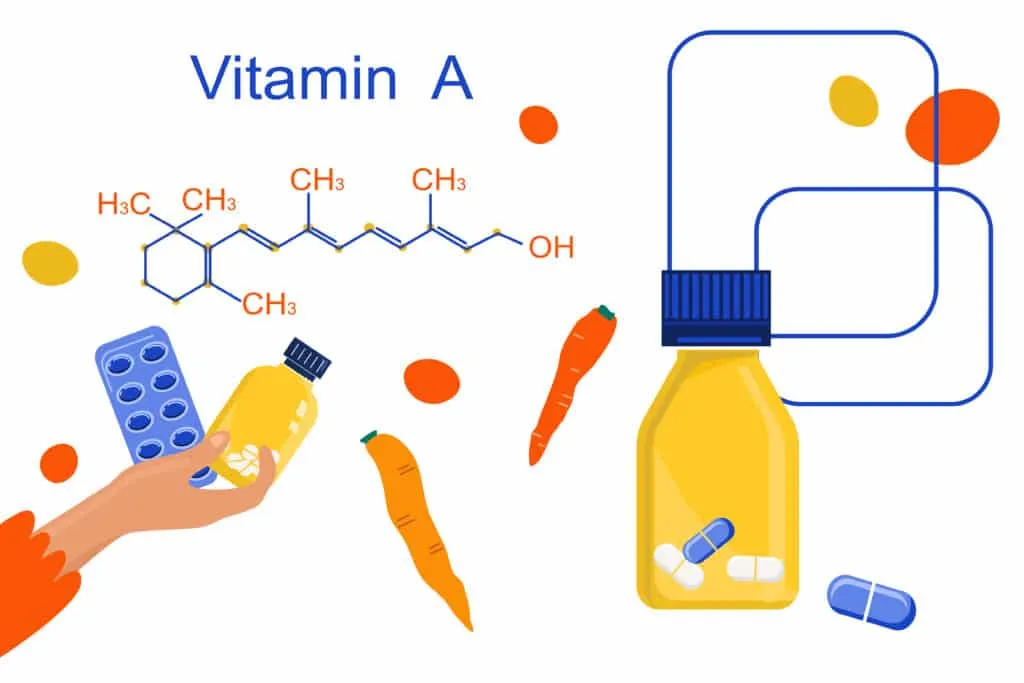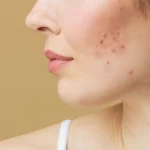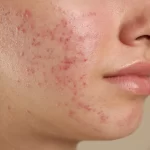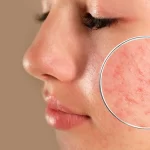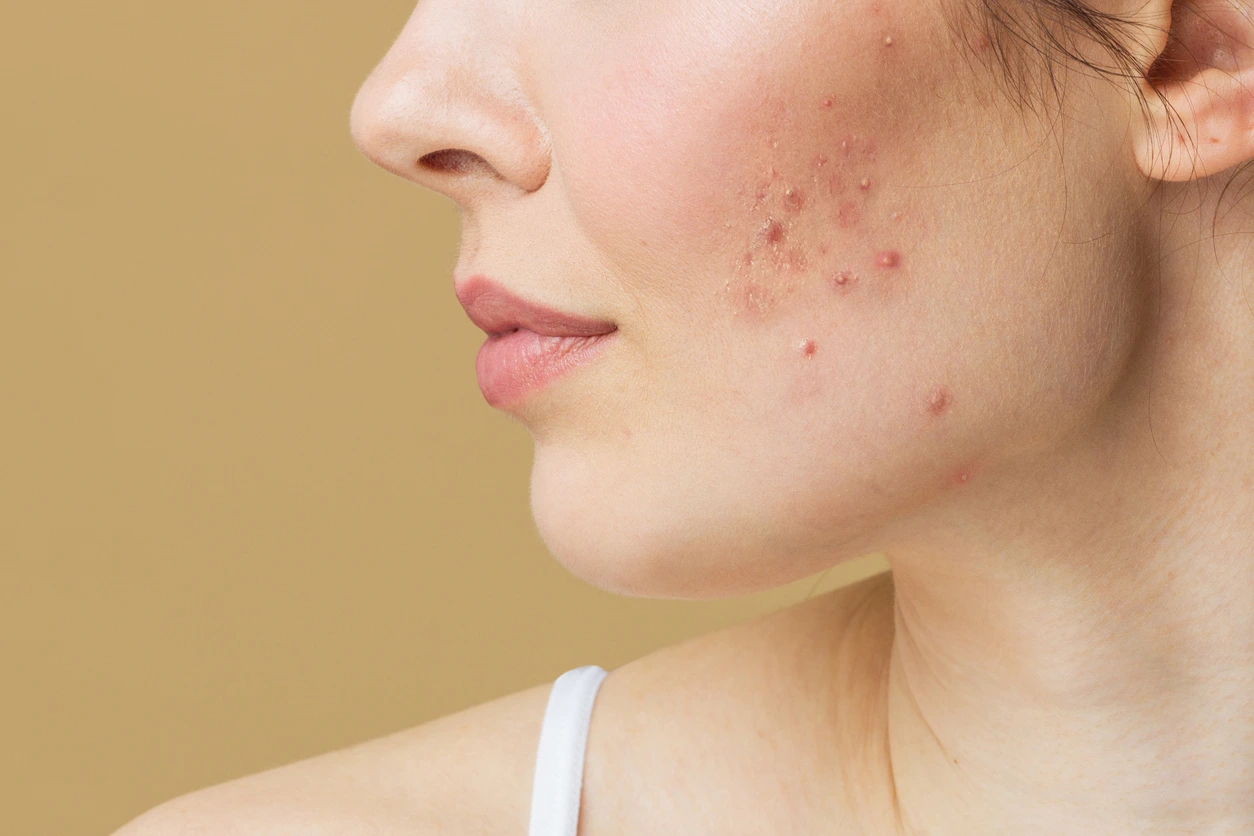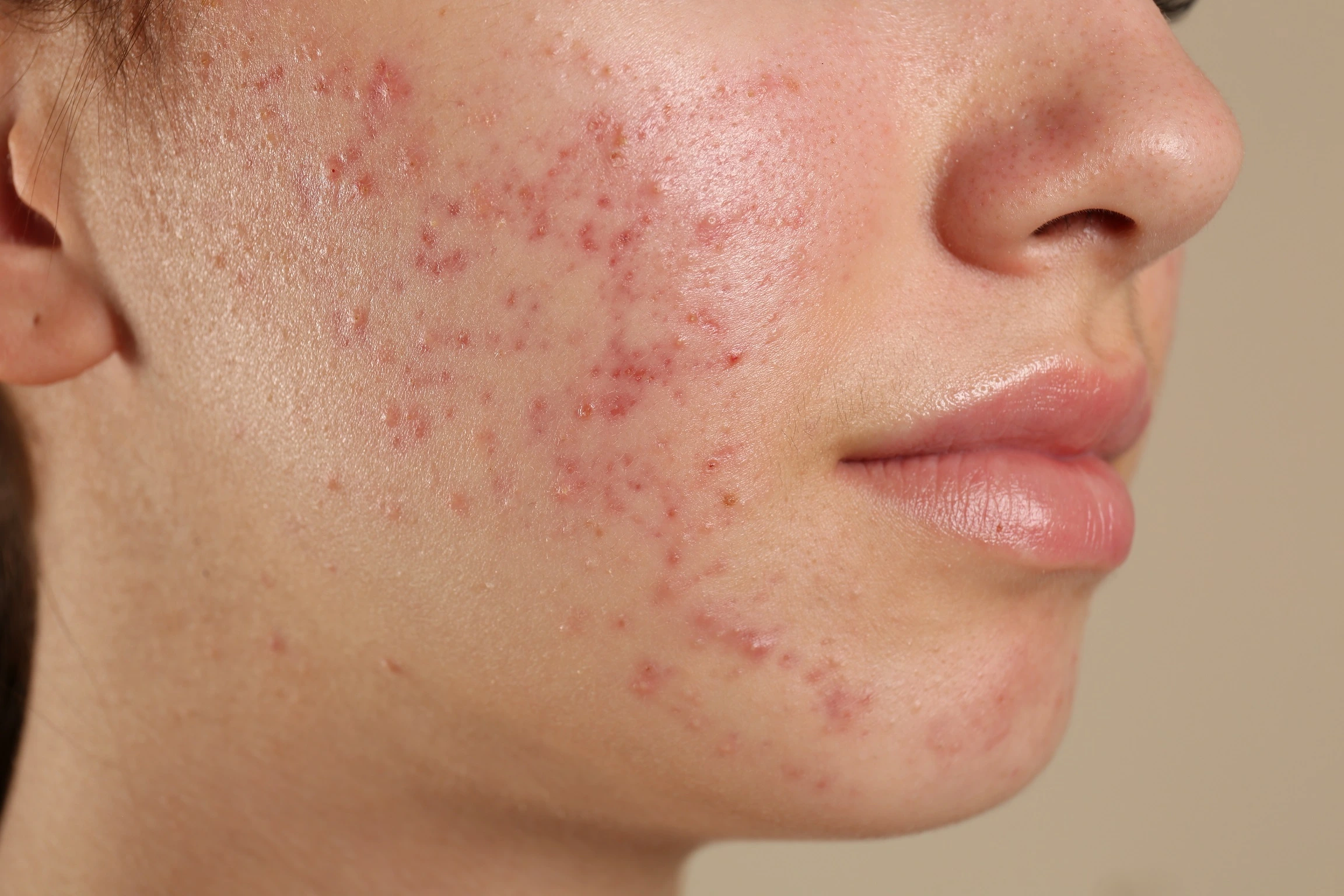The link between Accutane and vitamin D involves how isotretinoin may alter how your body absorbs and utilizes this essential vitamin during acne treatment. Some studies have shown small changes in vitamin D levels among patients with acne, depending on their diet, dosage, and exposure to sunlight.
Maintaining a balanced vitamin D level helps the skin heal faster and supports bone health during treatment. For most people, Accutane and vitamin D can be safely managed together with medical supervision. Regular checkups help prevent side effects and ensure good results.
At DermOnDemand, Dr. Alicia Atkins and her team of board-certified dermatologists investigate how vitamin D levels impact acne outcomes and patient safety. Understanding the interaction between Accutane and vitamin D helps patients make informed decisions about supplements and testing during treatment.
Key Takeaways
- Accutane can affect how the body absorbs and uses vitamin D, so regular blood tests help maintain safe, balanced vitamin D levels during treatment.
- Most acne patients can take Accutane and vitamin D together safely when supervised by a dermatologist who monitors serum levels and dosage.
- Adequate vitamin D supports bone health, immune balance, and faster skin recovery, while deficiency may slow healing and increase fatigue.
- A balanced diet, limited sun exposure, and doctor-approved vitamin D supplements help prevent unwanted side effects during isotretinoin therapy.
- DermOnDemand’s board-certified dermatologists, led by Dr. Alicia Atkins, provide personalized online care to track vitamin D levels and optimize acne treatment outcomes.
How Accutane and Vitamin D Interact
How Accutane Affects Vitamin D Levels
Accutane can change vitamin D metabolism by affecting how your body handles fat-soluble vitamins. Because vitamin D is absorbed through fat, isotretinoin’s effect on fat levels may change how much vitamin D stays in the body.
Some patients with acne experience a slight drop in vitamin D levels, while others show no change. The result often depends on diet, health, and the dose, measured in milligrams per kilogram (mg/kg).
Does Accutane Cause Vitamin D Deficiency?
Most studies show Accutane does not cause a serious vitamin D deficiency. Still, small drops in vitamin D3 can occur, especially with limited sun exposure or a poor diet.
Doctors often monitor serum levels during treatment, especially with long-term use, as vitamin D plays a significant role in bone mineral density and bone metabolism.
What Vitamin Does Accutane Affect Most?
Accutane primarily affects vitamins A and D. Excessive vitamin A intake can be harmful, so individuals taking isotretinoin should avoid taking extra vitamin A.
Additionally, vitamin D levels may fluctuate slightly during long-term treatment. Maintaining adequate vitamin D3 levels helps protect bones and reduces the risk of adverse effects.
Insights from Studies on Isotretinoin and Vitamin D
Material and methods from different clinical trials show mixed findings. Some studies indicate that isotretinoin helps maintain normal vitamin D levels in patients with acne, while others reveal a slight decrease.
The main point is that everyone reacts differently. Regular tests and clear communication between patient and doctor are key to safe care.
What Research Says About Long-Term Effects of Isotretinoin on Vitamin D
Many clinical trials investigate the effects of isotretinoin on vitamin D levels and bone mineral density. Most show only small or short-term changes in serum levels that return to normal after treatment. Research continues to investigate the long-term effects of isotretinoin use on vitamin D metabolism and bone health.
Understanding these studies helps patients make informed decisions and discuss safe acne treatment options openly with their dermatologist.
Vitamin D Deficiency and Skin Health

Signs of Low Vitamin D During Accutane Treatment
Low vitamin D can cause tiredness, muscle pain, or slow skin healing. In patients with acne, low vitamin D levels may reduce the effectiveness of treatment. Simple blood tests can help find changes early.
Can Vitamin D Aggravate Acne?
Vitamin D does not exacerbate acne. In fact, it can help reduce swelling and redness linked to acne vulgaris. Balanced vitamin D levels help skin heal faster and reduce breakouts. If you’re wondering how oil production changes with treatment, read more about Accutane and oily skin and how it affects overall skin balance.
Why Vitamin D Matters for Acne and Skin Repair
Vitamin D helps your skin rebuild and form collagen, which is important after acne clears. It also supports calcium absorption, which allows for bone and skin strength. Balanced vitamin D helps smooth recovery and reduces dryness and irritation caused by Accutane.
Monitoring Vitamin D Levels During Accutane Therapy
How Often to Test Vitamin D Levels
Doctors typically check vitamin D levels before starting Accutane and periodically thereafter to ensure optimal treatment. This helps spot changes early, especially in long-term treatments.
Understanding Your Lab Results
Healthy vitamin D levels typically range from 30 to 50 ng/mL. If your numbers are lower, your doctor might suggest diet changes or vitamin D supplements. Tracking these results helps protect bone health and improve acne recovery.
Taking Accutane and Vitamin D Together Safely
Can I Take Accutane and Vitamin D Together?
Yes, you can take vitamin D and Accutane together with a doctor’s advice. Most dermatologists check blood levels to make sure your intake is safe. Balance depends on your diet, sunlight, and overall health.
Vitamin D Supplementation and Acne
Vitamin D supplements can help individuals with acne who have low levels. It supports the immune system and may calm inflamed skin. Always take only the amount prescribed by your doctor to minimize the risk of side effects.
What Helps Accutane Absorb Better?
Take isotretinoin with a meal that contains healthy fats, such as avocado or salmon. This improves absorption of both Accutane and vitamin D3. Eating the same way each day helps maintain steady serum levels.
When to Consult a Dermatologist Before Taking Supplements
Always consult a dermatologist before starting any new supplements. Your doctor will check your vitamin D level to ensure it aligns with your acne treatment plan. This step helps keep you safe and supports informed consent during your care.
What to Discuss with Your Dermatologist
Questions to Ask Before Starting Accutane
- How will my vitamin D and other nutrients be tracked?
- Should I change my diet before starting treatment?
- What side effects should I be aware of?
Questions to Ask During Treatment
- When should I retest vitamin D levels?
- How can I ease dryness or irritation?
- Are there signs I’m getting too much vitamin D?
Nutrition and Vitamins During Accutane
The Best Nutrients to Take on Accutane
Besides vitamin D, nutrients such as zinc and omega-3 fatty acids help keep skin strong. Avoid vitamin A supplements, since isotretinoin already affects vitamin A levels. A balanced diet supports skin health and lowers the risk of side effects.
Vitamin D Foods to Support Acne Treatment
Eat foods rich in vitamin D3, like eggs, salmon, sardines, and fortified milk. These help your body keep healthy bone metabolism and energy levels. Good nutrition supports faster acne recovery.
How to Balance Supplements During Treatment
Use only dermatologist-approved supplements. Follow your prescribed dose of mg/kg carefully. Keeping track of your meals and lab results helps maintain stable vitamin D levels.
Lifestyle Habits That Support Vitamin D Balance
Safe Sun Exposure Tips
Get 10 to 15 minutes of sunlight on your hands, arms, or face most days. Always use SPF 30 or higher to protect your skin. Small amounts of safe sun exposure help your body produce vitamin D naturally.
Exercise and Bone Health
Light exercise, such as walking or stretching, helps maintain bone metabolism and keeps muscles strong. It may also ease joint stiffness during treatment.
Managing Side Effects Related to Vitamin D and Accutane
Common Side Effects to Watch For
Accutane can sometimes cause tiredness, joint aches, or mild muscle pain. Learn more about common isotretinoin side effects to better understand what to expect during treatment. These may be linked to changes in vitamin D or shifts in bone metabolism.
How to Reduce Risk
- Take Accutane with meals that have healthy fats.
- Follow your doctor’s prescribed dose.
- Report any pain or fatigue to your dermatologist.
Expert Dermatology Care and Monitoring
How Online Dermatologists Monitor Vitamin D Levels
At DermOnDemand, Dr. Alicia Atkins and her team monitor each patient’s vitamin D status through secure online lab submissions. Patients upload recent test results, which are reviewed alongside their acne progress and medication details.
The dermatology team tracks vitamin D metabolism and bone health to ensure safe isotretinoin use and make timely adjustments when needed. This approach helps maintain balanced levels without interrupting acne treatment.
Personalized Supplement Plans for Acne Patients
Every patient with acne has different needs. Dr. Atkins’s team reviews serum levels, diet, and treatment history to design supplement plans that support both skin recovery and overall health.
These customized plans include clear dosing guidance for vitamin D and other essential nutrients. Regular updates keep each plan aligned with the patient’s progress and lab data.
Fast, Discreet, Prescription-Grade Dermatology Care
DermOnDemand makes expert dermatology simple and private. Patients can complete a secure consultation, share lab results, and receive prescription-grade care, all from the comfort of their own homes.
Dr. Atkins’s team gives expert care, prescription guidance, and follow-up support with privacy and convenience. For personalized care and advanced options, explore how an acne treatment dermatologist can help you get faster, lasting results.
Ready to take control of your skin health?
Book your private online consultation with a board-certified dermatologist at DermOnDemand and get a personalized Accutane and vitamin D plan reviewed by Dr. Alicia Atkins. Patients receive expert advice, treatment, and follow-up care from the comfort of their own homes.



